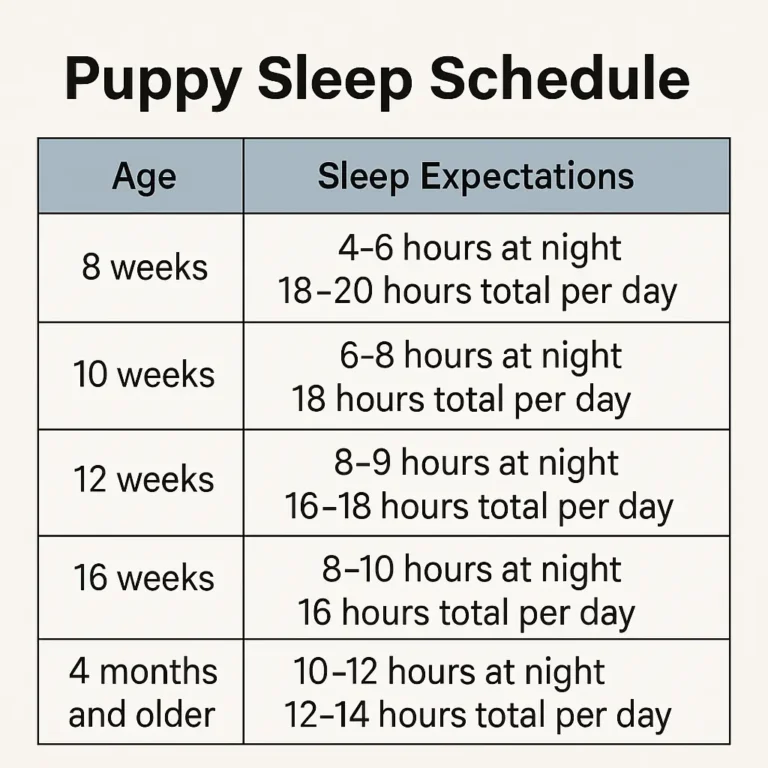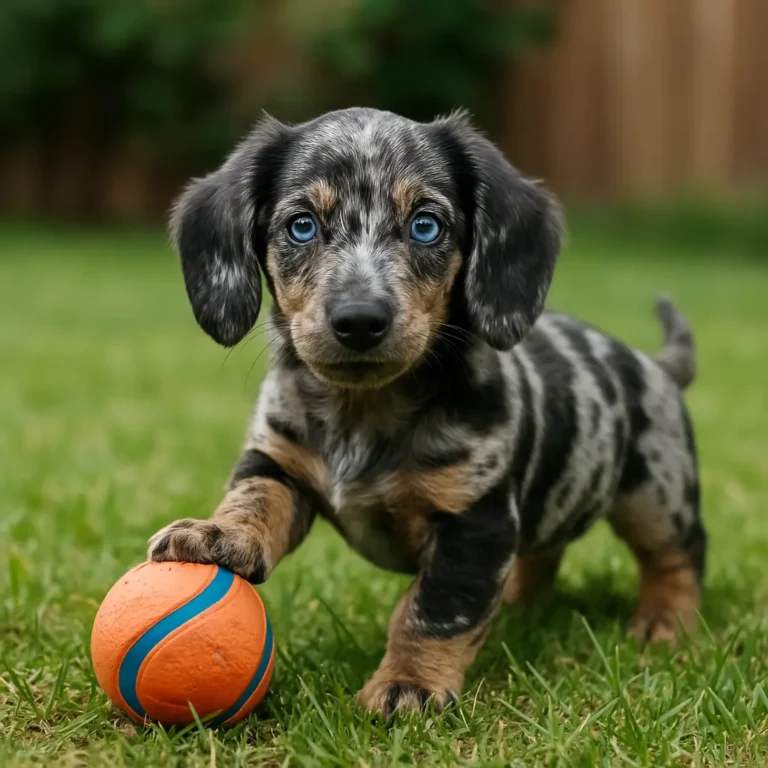Dachshund
🐶 Dachshund: The Adorable and Fearless Sausage Dog
The Dachshund is a small but mighty breed known for its elongated body, short legs, and bold personality. Originally dog bred in Germany for hunting badgers, these dogs are now one of the most popular companion breeds worldwide. They come in three coat types—smooth, long-haired, and wire-haired—and two sizes, standard and miniature. Dachshunds are known for their playful, affectionate, and determined nature, making them great family pets. However, they can be stubborn, requiring consistent training.

🐾 Dachshund Puppies: Playful and Full of Energy
Dachshund puppies are curious, energetic, and eager to explore. They require early training and socialization to develop good manners. These tiny pups are full of personality, often displaying a mix of bravery and affection.
Breed Traits
Dachshunds are intelligent, courageous, and affectionate, making them great companions for active families.
With proper care, a Dachshund can live 12 to 16 years, with some even reaching 18 years!
Standard Dachshunds are 8–9 inches, while Mini Dachshunds stand 5–6 inches tall.
Standard Dachshunds weigh 16–32 lbs, while Mini Dachshunds stay under 11 lbs.
Dachshunds thrive in apartments or houses as long as they get daily exercise.
Breed Characteristics
Dachshunds are alert, independent, and affectionate, forming strong bonds with their families.
Yes! Dachshunds are great with children, but supervision is necessary due to their fragile backs.
They have a long, muscular body, short legs, and an expressive face.
Dachshunds are friendly but may be reserved with strangers. Early socialization is key.
These dogs are loyal, lively, and sometimes stubborn, making them both fun and challenging.
🎓 Training a Dachshund
Dachshunds are intelligent but can be stubborn. They respond best to positive reinforcement training.
Dachshund History & Facts
Dachshunds were developed in Germany over 300 years ago for hunting badgers and other burrowing animals.
Their name means "badger dog" in German.
They were Queen Victoria's favorite breed.
Dachshunds have a strong prey drive.
They come in over 15 colors and patterns.
The first Olympic mascot was a Dachshund named Waldi.
🐾 Popular Dachshund Mix Breeds
Love Dachshunds? You might also like these adorable Dachshund mixes:
Dachshund Poodle Mix – A smart, hypoallergenic hybrid.
Dachshund Chihuahua Mix – A tiny but energetic mix.
Dachshund Beagle Mix – A fun-loving scent hound hybrid.
Food for Dachshunds: Essential Nutrition for a Healthy Life
Dachshunds need a balanced diet to maintain their energetic lifestyle. Their meals should consist of high-quality protein, healthy fats, and plenty of fiber. Small dog food formulas are best, as they cater to their nutritional needs. Always opt for a diet rich in essential nutrients to ensure their overall health, promoting healthy coat growth and strong muscles. Regular meals and portion control are vital to avoid obesity, as Dachshunds tend to overeat. Additionally, providing fresh water daily keeps them hydrated and supports their active nature. A varied diet, complemented by occasional treats, is ideal for a well-rounded diet.
Breed Behaviour: What to Expect from a Dachshund
Dachshunds are known for their bold and independent personalities. Despite their small stature, they have a strong will and can be quite vocal. They are friendly, loyal companions who love to play and explore. However, they can be a bit stubborn, requiring consistent training and patience.
Alertness
Protectiveness
Prey drive
Aggressiveness
Barking level
Trainability
Mental stimulation needs
Intelligence
Dachshund Mix: Popular Crossbreeds for Dachshund Lovers
Dachshunds are often mixed with other breeds, resulting in unique and charming crossbreeds. The Dachshund-Poodle mix, known as the Doxiepoo, combines the Dachshund’s feisty personality with the Poodle’s intelligence and hypoallergenic coat. Another popular mix is the Dachshund-Labrador mix, which combines the Dachshund’s courage with the Labrador’s friendly demeanor. Dachshund mixes often retain the small size and lively nature of the Dachshund, making them excellent companions for families and individuals alike. Whether it’s a mix for an active lifestyle or a relaxed companion, these crossbreeds make excellent pets.
Grooming Your Dachshund: Tips for a Healthy Coat
Grooming your Dachshund is essential for maintaining their coat and skin health. Dachshunds come in three coat types: smooth, longhaired, and wirehaired. Longhaired Dachshunds require regular brushing, ideally once or twice a week, to prevent matting and tangles. Wirehaired Dachshunds need regular plucking to keep their coat in top condition. Regardless of coat type, all Dachshunds should be bathed as needed, typically once a month or when they get dirty. Regular nail trimming, ear cleaning, and dental care are also essential for keeping your Dachshund healthy and comfortable.
Physical Attributes: Compact Yet Mighty
The Dachshund is a small, elongated dog with a deep chest and short legs. Their long, muscular body and distinctive appearance set them apart. Despite their small size, they are energetic, bold, and confident, making them a charming and unique companion. They are known for their playful nature and keen hunting instincts.
Breed Size
Colours
Coat
Drooling
Snoring
Exercise Needs
Grooming Needs
Aggressiveness
Health: Keeping Your Dachshund Healthy
Dachshunds are generally healthy, but due to their long spines, they are prone to intervertebral disc disease (IVDD), which can cause back problems. Regular vet checkups and a healthy weight are crucial for spine health. They are also susceptible to obesity, which can exacerbate back issues. Dental care is also important as Dachshunds can be prone to dental disease. While Dachshunds are typically active, their small legs make them prone to joint problems like luxating patellas. With a balanced diet, moderate exercise, and regular checkups, Dachshunds can live a long, healthy life, averaging 12 to 16 years.
Dog Breed Size: Small Yet Mighty
Dachshunds are classified as top small dogs, typically standing 8 to 9 inches tall at the shoulder and weighing between 11 and 32 pounds. Despite their petite size, they possess a confident and bold personality. Their small stature makes them suitable for apartment living, and they are adaptable to various environments. Their long, muscular body and short legs contribute to their unique appearance, and despite being small, they are surprisingly agile and active. Regular exercise, a healthy diet, and careful attention to their spine health are essential to maintain their well-being throughout their life.
Frequently Asked Questions About Dachshunds
Are Dachshunds good with children?
How much exercise do Dachshunds need?
Do Dachshunds shed a lot?
Are Dachshunds prone to back problems?
Do Dachshunds bark a lot?
How long do Dachshunds live?
Are Dachshunds easy to train?
Can Dachshunds be left alone at home?
Dog Life: Enjoying Life with a Dachshund
Dachshunds are full of personality, combining a playful nature with a confident demeanor. Despite their small size, they have a larger-than-life presence, making them great companions for both individuals and families. They enjoy interactive playtime, cuddles, and being the center of attention. Their alertness and intelligence make them good watchdogs, while their affectionate and loyal nature means they bond closely with their families. Dachshunds thrive in homes where they are loved and given ample opportunities for mental and physical stimulation. Their playful yet affectionate nature ensures they are cherished by their owners for years to come.
Dachshunds are the perfect combination of charm, intelligence, and loyalty in a small package. Despite their size, they are bold, alert, and active. Their playful personality, combined with their independence, makes them an ideal companion for many households. With proper care, Dachshunds can live long and healthy lives, bringing joy and affection to their families. Whether you’re looking for a lively playmate, a dedicated watchdog, or a loyal lap dog, the Dachshund is an excellent choice. Their unique appearance, bold attitude, and affectionate nature ensure they make an unforgettable addition to any family.



























